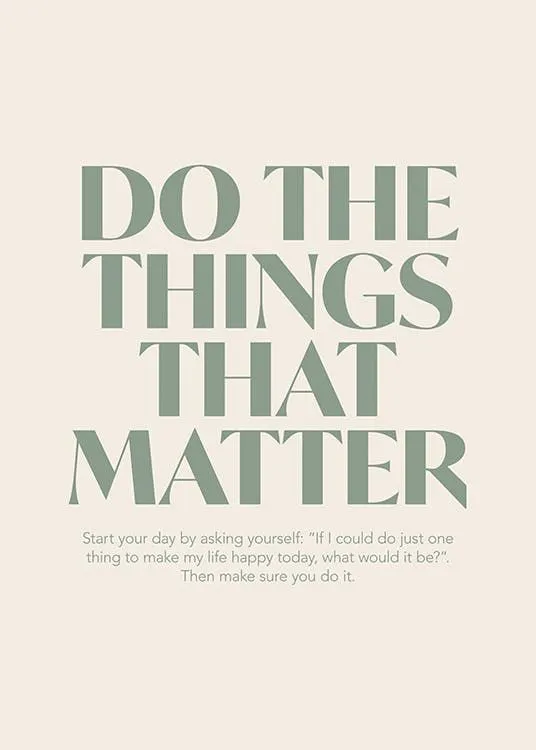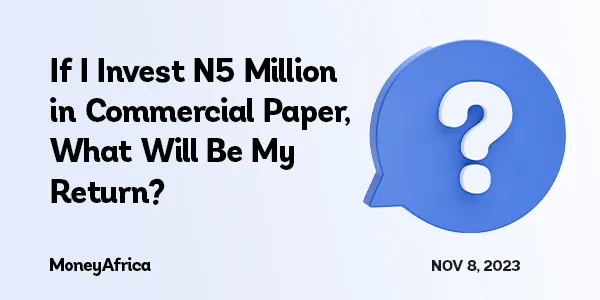Good Morning 😃
Recently, Dangote Cement issued commercial papers with tenures of 186 and 270 days. The open date for this offering was November 6 and closed on November 7. Although this particular deal has concluded, this article will provide insight into what commercial papers are and how investors can benefit from them.
What is commercial paper?
Commercial paper is a short-term debt instrument issued by corporations and financial institutions to secure financing for working capital and immediate requirements. It is typically regarded as a low-risk investment.
How does it work?
Imagine a scenario where a large company, like an industrial machinery store, has just won a contract and needs to urgently raise funds to purchase the necessary products for resale. However, the company doesn’t want to borrow money for an extended period; it only needs it temporarily.
Instead of approaching a bank for a loan or seeking capital through the stock market, the company can opt for something called “commercial paper.”
For instance, MTN Nigeria issued a series 8 and 9, N52.8 billion commercial paper which according to Uto Ukpanah will be deployed towards short-term working capital and funding requirements.
Why do companies prefer commercial paper to bank loans and others?
Companies prefer commercial paper (CP) over bank loans and the stock market for short-term financing due to its cost-effectiveness and flexibility. It typically offers lower interest rates, faster access to funds, and avoids the lengthy process and regulatory requirements associated with bank loans and stock market offerings.
Some common features of a commercial paper
Tenor: In Nigeria, the maturity of commercial paper is between a minimum of 15 days to 270 days maximum. The debt is usually issued at a discount that reflects market interest rates.
Implied return: The implied return, also known as the yield to maturity (YTM), is the effective interest rate that an investor will earn if they hold the commercial paper until it matures. It takes into account the discount at which the paper was purchased and the face value at maturity.
Discount rate: The discount rate is the rate at which the commercial paper is initially sold to investors. It’s typically lower than the nominal or face value of the paper. In other words, it’s the price at which the investor purchases the commercial paper. This discount reflects the interest that the investor will earn upon maturity.
Maturity date: The date on which the commercial paper becomes due for repayment, and the investor receives the face value or principal amount.
Open date: The date when the commercial paper is made available for purchase by investors.
Close date: The date when the offer to purchase the commercial paper is closed, and no more subscriptions are accepted.
Issuer rating: The credit rating assigned to the issuer of the commercial paper, indicating their creditworthiness and the likelihood of repayment. Higher ratings reflect lower credit risk.
Minimum subscription: The minimum amount of money that an investor must invest to participate in the commercial paper offering.
How can you calculate the return on a commercial paper?
Using the Dangote Cement scenario, one of the papers issued has a 186-day tenor, with a 14.5% implied return and a 13.5041% discount rate. The opening date was November 6, and the closing date was November 7. The maturity date is May 14, 2024.
Expected return
If an investor invests N5 million into this paper, how much will they receive at maturity?
To calculate the amount an investor would receive at maturity for a commercial paper investment, we shall use the following formula:
Amount at Maturity = Principal Amount / (1 – (Discount Rate * (Number of Days to Maturity / 365)))
In this case, we have:
Principal Amount (P) = N5,000,000
Number of Days to Maturity (N) = 186 days
Discount Rate (R) = 13.5% (0.135)
So, plug these values into the formula:
Amount at Maturity = 5,000,000 / (1 – (0.135 * (186 / 365)))
Amount at Maturity = 5,000,000 / (1 – 0.068493)
Amount at Maturity = 5,000,000 / 0.931507
Amount at Maturity ≈ 5,361,642.62 Naira
The investor would receive approximately N5,361,642.62 at maturity (after 186 days) for the N5 million investment in the commercial paper.
When should an investor invest in commercial paper?
An investor in Nigeria should consider investing in commercial paper when seeking a relatively safe and short-term investment with moderate returns. It’s a suitable option when needing to preserve capital or park funds temporarily, such as for liquidity needs, while earning a modest yield.
If you would like to learn more or need a financial advisor to guide you on investment decisions, please send an email to sales@themoneyafrica.com
Don’t forget to download Ladda to start saving towards your other goals.
To download Ladda for iOS, click on this.
To download Ladda for Android, click on this.
***
Would you like to know the state of your finances?
Take this test to see how you are doing financially
***
Do you know that we have our own podcast? It’s MONEYTALKS!💚
Here’s a link to listen to all the amazing episodes we have!
***
Thank you for reading Money Africa’s Blog.
Please feel free to share it.
MoneyAfrica premium plan
Are you a mid to high-income earner? Do you find communities a bit too busy? You should sign up for our premium plan.

You can learn more about that here.
***
We often get questions regarding how to plan your finances to align with your relocation plans, especially for students seeking to further their studies. As always, we have heard you, and we have put together an e-book to help you navigate this. Follow this link, to get your FREE copy of the e-book: The Japa Encyclopedia.
***
Get our annual subscription and learn more about investing safely and building a solid portfolio in 2023.
Don’t forget to:
- Join our community, if you want to smash your 2023 financial goals. It takes at least 30 days to build great habits that will last you a lifetime. So why not start now? There is a lot you can achieve.
- If you would like to document your financial journey in 2023, then our journal would be an excellent fit for you. It costs ₦7,500 (excluding delivery).
- Get a budget sheet to track your monthly expenses. Click here
- Get an investment tracker to be on top of all your investments. Click here
MoneyAfrica is a financial literacy platform. Our goal is to make everyone better with their finances.
We do this by engagements via our:
– social media handles
– platforms for paid community members (for adults and students)
– webinar sessions with corporate clients
Would you like to join any of the communities? Please click here
Would you like us to hold a webinar for your company’s staff? Please send an email to info@themoneyafrica.com


